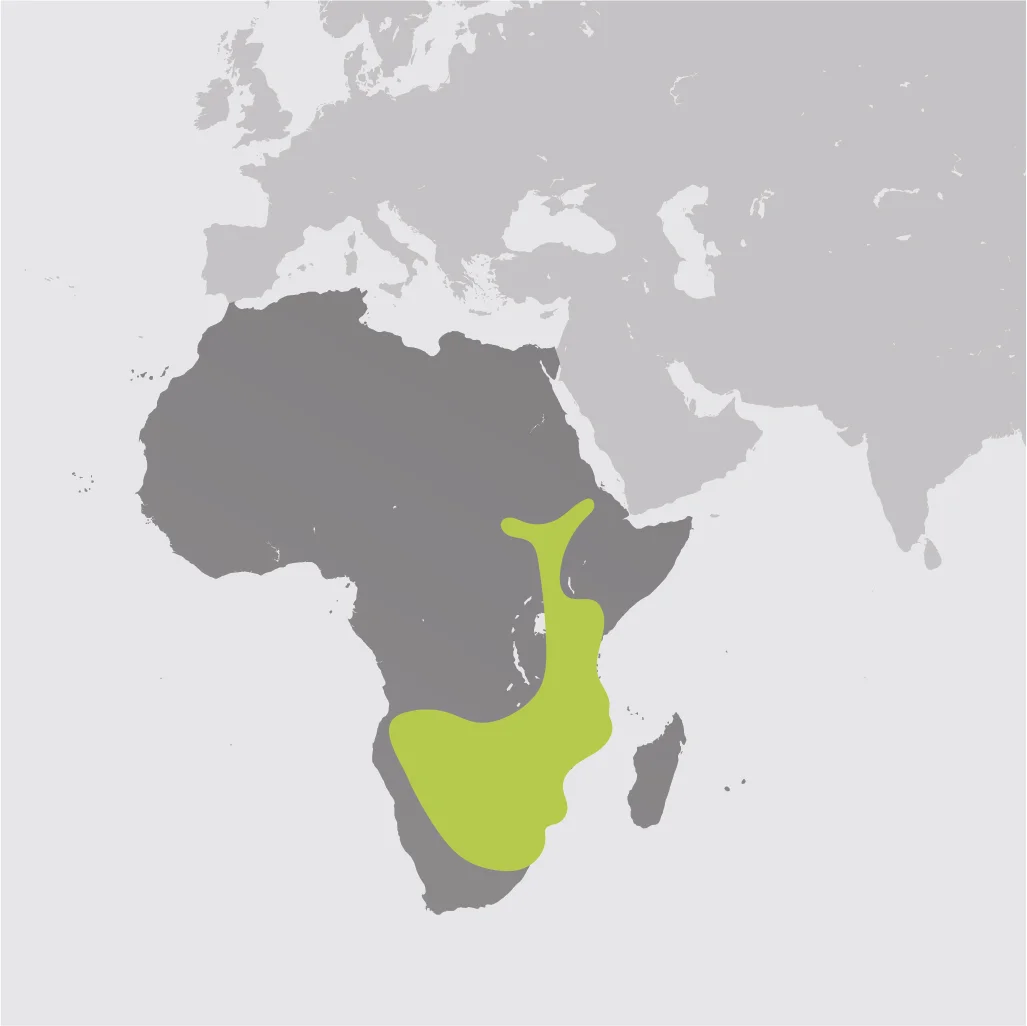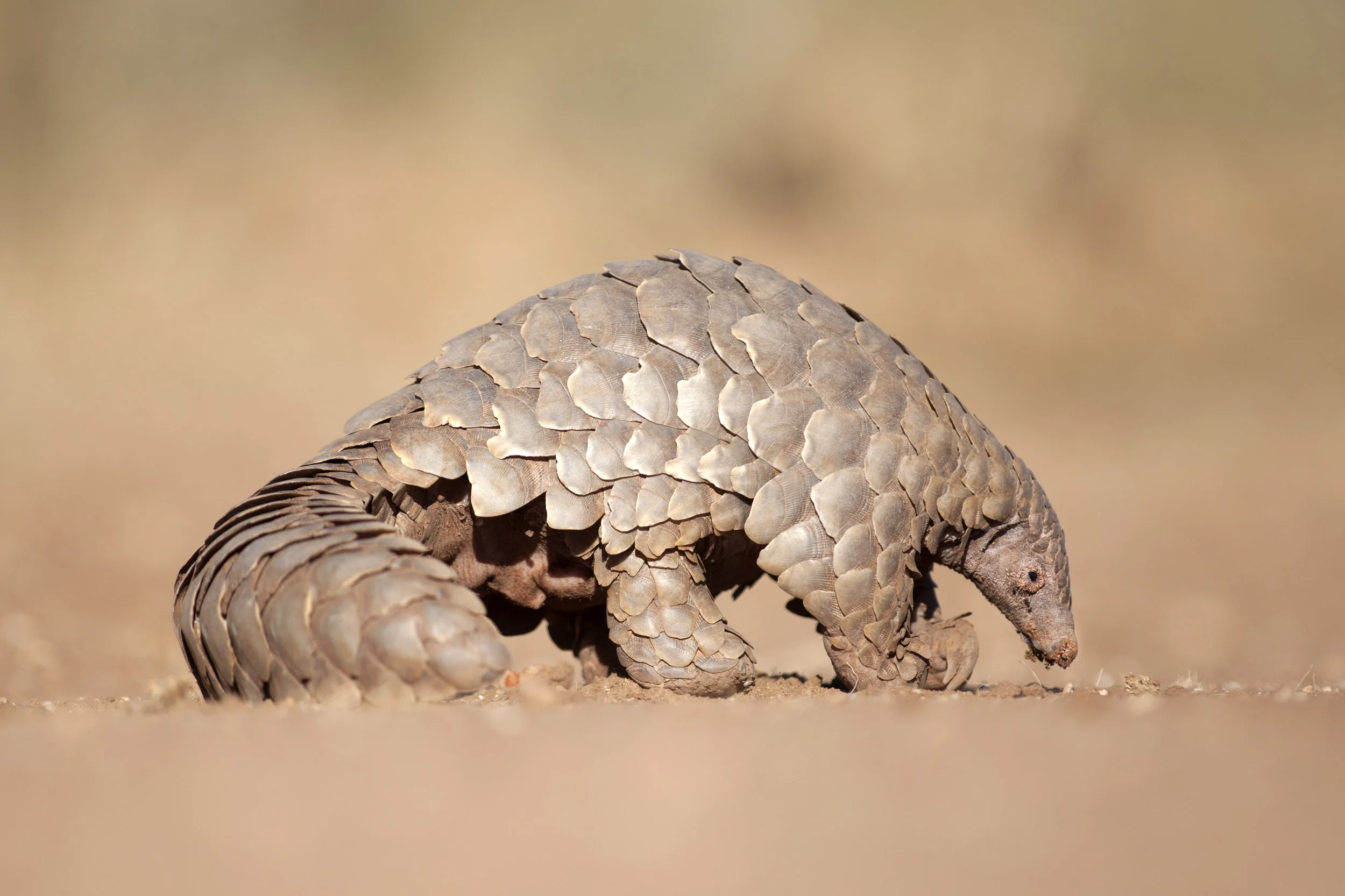Pangolin
"Shy Violets" by Steph Laberis (digital)
“I chose these animals for a variety of reasons; the okapi and pangolin because they are my favorite lesser-known beauties… I love painting textures, so each animal provided a different challenge in terms of capturing spots, stripes and scales.”
Your purchase is helping Expedition Art and Saving Species purchase land in Sumatra! Learn more about the project.
Habitat
The habitat of the ground Pangolin species is quite widespread. They generally reside in central and southern areas of Africa, including the countries Sudan, Ethiopia, Uganda, Kenya, Tanzania, Zambia, Zimbabwe, Mozambique, Angola, Namibia, Botswana, and South Africa. They prefer sandy soils and can be found in woodlands and savannas that are within reach of water.
Family Life
Pangolins are solitary animals, living primarily on their own, meeting only to mate and produce a litter of one to three offspring which are raised for about two years. Baby pangolins travel around with their mothers by riding on the base of her tail. They prefer sandy soils where they are easily able to create burrows using their strong and sharp claws. They have also been known to take advantage of burrows created by other animals. Pangolins are most active at night, during which they venture out in search for food, sometimes traveling distances of up to 6 kilometers to locate a meal. A Pangolins keratin scales are too hard for even a lion to bite through, and they also secrete a smell similar to a skunk to keep predators away.
Lifespan
It is unknown how long pangolins live in the wild, though it’s been reported they’ve lived as long as 20 years in captivity.
Hunting Habits/Diet
Pangolins are insectivorous, consuming a wide variety of ant and termite species, and also able larvae and other insects. Pangolin do not have teeth and are unable to chew, so use their sticky tongues to collect insects. They can consume up to 70 million ants a year.
Population
Little is known about this elusive creature, so it’s difficult to estimate its population.
Fun Fact
When fully extended, a pangolin's tongue can be up to 16 inches longer than its entire body length!
Why are they Endangered?
The biggest threat to all pangolin species today is illegal, commercial hunting for human consumption. In China, the flesh of both adult and fetuses is considered a delicacy. They also believe they will be blessed with health benefits if they eat it. The pangolin scales, blood, and other body parts are also widely used in traditional Chinese medicines and for health tonics.
Status
Endangered


